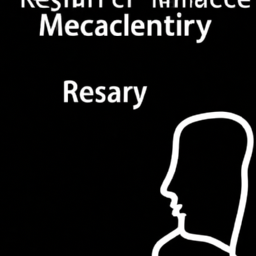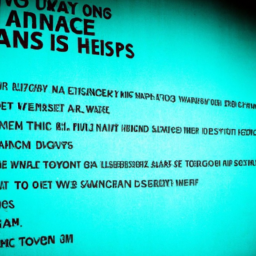Banks and credit unions alike have long had to abide by strict hiring restrictions when it comes to potential employees with criminal records. This has been a point of contention for many, as it is seen as unfair to those who have already paid their debt to society and are simply trying to start anew.
However, in recent weeks, a new federal law has been passed that relaxes restrictions on banks and credit unions and allows them to be more lenient when it comes to hiring people with criminal histories. This new law is seen as a major victory for those who have long been pushing for more lenient hiring practices in the banking and financial industry.
The new law is called the Fair Chance Act, and it was signed into law on May 22, 2019. The Act requires that employers in the banking and financial industry must provide applicants with a “fair chance” to be considered for employment. This means that employers must now look at potential employees on an individual basis and take into account their individual qualifications and circumstances before making a hiring decision.
The Fair Chance Act does not outright ban employers from using criminal history in their hiring decisions, but it does require that employers must take into account the age of the conviction, the type of crime the potential employee was convicted of, and the amount of time that has passed since the conviction occurred. Additionally, employers must consider any evidence of rehabilitation or any other mitigating factors that might indicate that the potential employee is likely to perform their job duties in a satisfactory manner.
This new law is important because it allows banks and credit unions to be more lenient when it comes to hiring individuals with criminal records. This opens up the hiring process to a much larger pool of potential employees. It also gives those with criminal records a better chance of finding employment in the banking and financial industry.
It is important to note that the Fair Chance Act only applies to employers in the banking and financial industry. Other industries are not required to abide by the Fair Chance Act’s standards and may still have more stringent requirements when it comes to hiring individuals with criminal records.
So, what does this mean for employers in the banking and financial industry? It means that employers must now be prepared to consider applicants with criminal records more seriously. They must also be aware of the new requirements of the Fair Chance Act and be prepared to take into account mitigating factors and evidence of rehabilitation when making hiring decisions.
Of course, employers must also be mindful of their legal obligations when it comes to hiring employees with criminal records. They must be aware of their state and local laws and ensure that they are in compliance with all applicable laws when making hiring decisions.
The Fair Chance Act is a major victory for those who have long been pushing for more lenient hiring practices in the banking and financial industry. It is a step in the right direction for those with criminal records who are trying to start anew. It is also a sign that employers in the banking and financial industry are taking into account the individual circumstances of potential employees and are willing to give them a fair chance to prove themselves.



